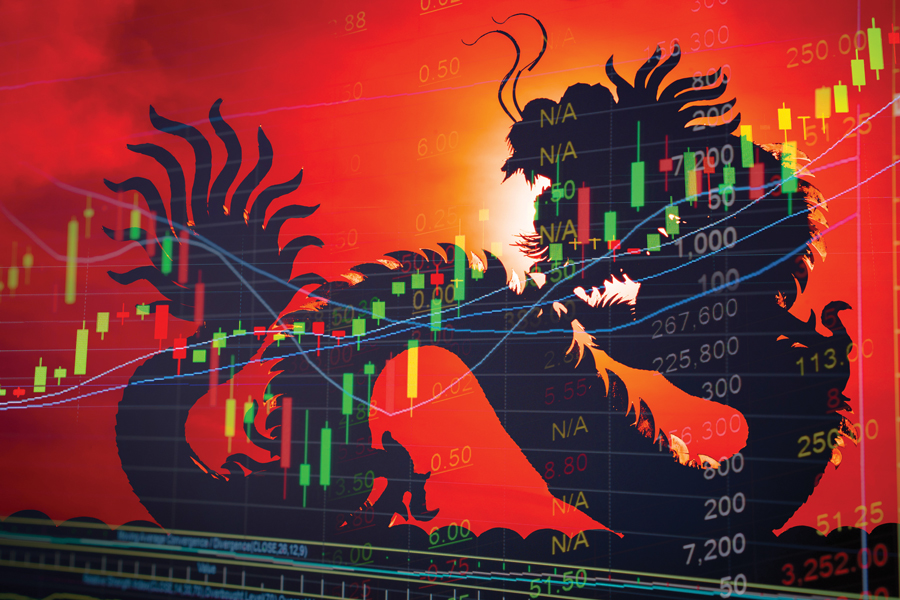

Amid heightened geopolitical tensions and economic uncertainties, investors are increasingly flocking to emerging market funds that exclude China.
Despite a recent surge in Chinese stock performance, concerns over Beijing’s strained relations with the West and long-term economic risks are prompting a significant shift in global investment strategies, according to leading fund managers.
As reported by the Financial Times, investment firms are seeing growing demand for so-called “ex-China” funds, with Franklin Templeton being the latest to launch a product playing to that trend. These funds, which have collectively grown assets by 75 percent this year to surpass $26 billion, allow investors to focus on other developing economies like India and Taiwan while minimizing exposure to China’s volatile markets, according to data from Morningstar.
“Investors are keen to avoid a certain sector or region, and the industry is happy to oblige,” Michael Field, European equity strategist at Morningstar, told the Times.
China remains a dominant player in emerging markets, making up roughly one-quarter of the MSCI index for developing economies. While that's an outsized weighting to be sure, it's still a sharp decline from a peak of over 40 percent during the pandemic, reflecting a growing hesitancy to invest in the world’s second-largest economy.
Until today, concerns are mounting over China’s political risks and ongoing tensions with the West, particularly as overseers of public funds in Europe and the US impose restrictions on Chinese companies tied to national security concerns.
“Investments in China simply carry a level of risk that is contrary to the interests of our retirees,” said Missouri State Treasurer Vivek Malek, reflecting the sentiment of US pension funds that have pulled back from Chinese assets. Florida governor Ron DeSantis also took action, signing legislation requiring the state's investment board to offload direct holdings in China.
The emerging movement toward China-free funds runs alongside an analysis by Bloomberg, where Chinese-focused ETFs emerged as some of the most volatile and wealth-destructive investment vehicles over the past decade. It found that while some Chinese funds have enjoyed massive inflows, they have also lost substantial value. As one example, the KraneShares CSI China Internet Fund, trading under the ticker KWEB, has attracted over $12 billion since its inception in 2013, but its holdings have descended to as low as $7.7 billion in value, a loss of nearly $5 billion.
“They’re trading vehicles, rather than investing vehicles,” Todd Sohn, an ETF strategist at Strategas told Bloomberg.
The extreme volatility in Chinese ETFs has mirrored broader challenges in the Chinese economy, which has been brought crashing down by a deepening housing crisis and government crackdowns on tech companies in recent years. Against that backdrop, KWEB’s value plummeted 52 percent in 2021 alone, even as investors continued pouring money into the fund.
As investors continue to reposition their portfolios, ex-China funds have received $10 billion in net inflows this year, outpacing broader emerging market equity funds, according to JPMorgan. With political and economic risks likely to persist, there's a growing believe that China’s outsized influence on emerging market investing may be entering a new phase, marked by greater diversification into less risky regions.

“LPL has evolved significantly over the last decade and still wants to scale up,” says one industry executive.

Survey findings from the Nationwide Retirement Institute offers pearls of planning wisdom from 60- to 65-year-olds, as well as insights into concerns.

Donald Trump's second turn at the White House is expected to bring a fresh bout of turbulence, supercharging retail demand.

“After learning about a bad actor who is barred, the securities industry should have a responsibility to put clients on notice,” one lawyer said.

Wealth managers weigh in on the chipmaker's influence over the greater market in the wake of its earnings report.
Streamline your outreach with Aidentified's AI-driven solutions
This season’s market volatility: Positioning for rate relief, income growth and the AI rebound
